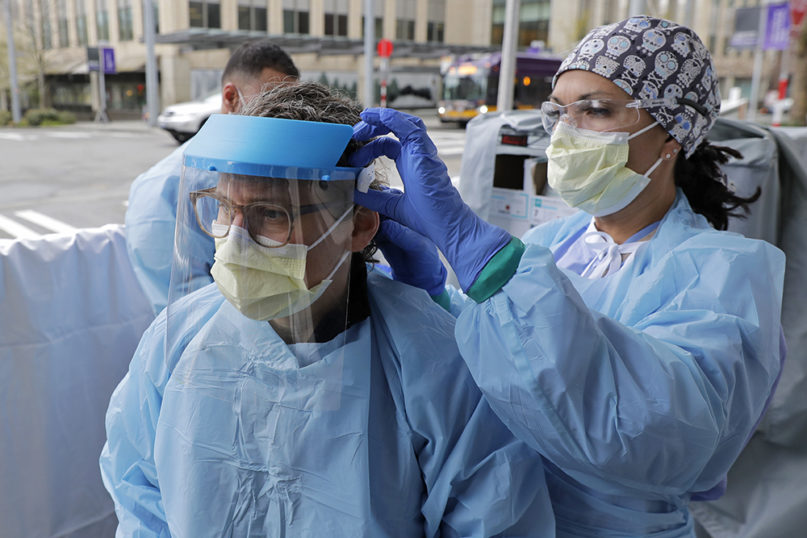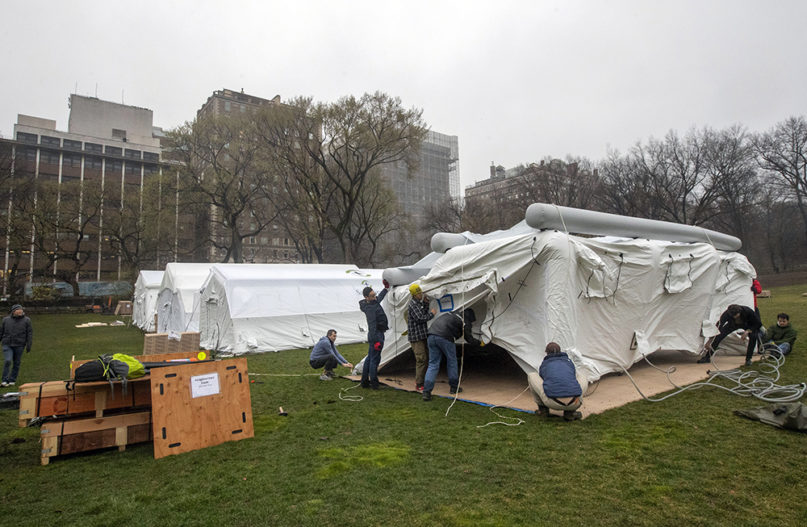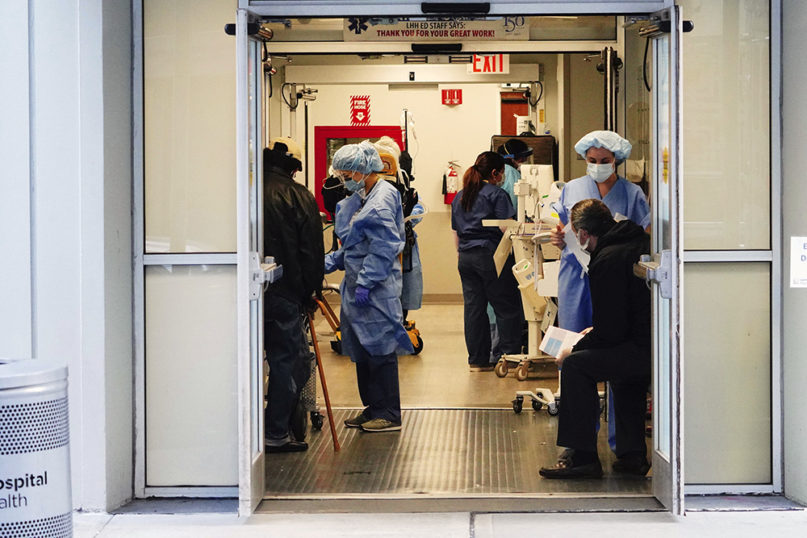(RNS) — Passover is about how a people who stay steadfast in hope can be liberated as a community from Mitzrayim, “a narrow place.”
Easter is the death of one paradigm and the rising of another.
Ramadan commemorates the end of jahiliyya, “the period of darkness,” which is vanquished in the emerging light of the Quran.
These three periods of holiness will occur within days of each other this year, as will sacred events for Hindus, Sikhs, Buddhists and Baha’is.
Collectively they carry a common message: The cosmic calendar calls us to renewal, forever changing the way we look at our lives in the material world.
RELATED: Click here for complete coverage of COVID-19 on RNS
Muslims refer to this as the dynamic between deen and dunya — the world of the spirit and the world of the physical. Often these are understood as two separate realms, but these days, the deen is suffusing the dunya like never before.
The deen of America is deep and diverse.
We are the most religiously devout nation in the Western Hemisphere and the most religiously diverse country in the world. The British writer G.K. Chesterton once commented that America was a nation with the soul of a church.
But actually we are so much more.
In an American hospital, a Jewish internist may be working with a Baha’i anesthesiologist to treat a Buddhist patient. They may be supported by a Muslim nurse, in a room cleaned by a Baptist custodian, at a hospital started by a Catholic religious order and run by a culturally Hindu CEO who does not believe in God.

Tilliesa Banks, right, an emergency services nurse at Harborview Medical Center in Seattle, helps a colleague put on a medical face shield prior to their shift in a triage tent outside the Harborview emergency department used to intake arriving patients who have respiratory symptoms, Thursday, April 2, 2020. (AP Photo/Ted S. Warren)
If that Buddhist patient approaches the end of her life, it is very likely that the person offering comfort would be a chaplain trained at a mainline Protestant seminary.
In the time of COVID-19, when the number of suffering patients is overwhelming the number of chaplains and medical staff, they are combining their own spiritual practice with respect for what they know about the identity of the patient and have been fashioning together last rites as best they can.
Without a doubt, many things that faith communities typically do are much harder now: physical gathering for communal prayer, the observance of traditional burial customs.
But other things are easier, like speaking freely of the sacred sources of our strength and solace and sharing these across lines of religious difference.
Another thing this pandemic has made easier — cooperation across lines of difference.
COVID-19 has collapsed the lungs of tribalism.
No one in any hospital is looking to cancel a doctor, a nurse or a patient because of a different belief system. Anthony Fauci is giving us all an object lesson on how to work together across lines of deep worldview disagreement.
We are remembering how essential cooperation is for a healthy, diverse democracy. We are realizing that we can disagree on some fundamental things while we work together on others.
Even those projects that have drawn some controversy, like the makeshift hospital set up in Central Park by Samaritan’s Purse, offer an opportunity to reflect on interfaith cooperation.

A Samaritan’s Purse crew works on building an emergency field hospital equipped with a respiratory unit in New York’s Central Park, across from the Mount Sinai Hospital, Sunday, March 29, 2020. (AP Photo/Mary Altaffer)
In normal times, I, too, might choose to emphasize my disagreements with the politics of the organization’s leaders. But these days I am grateful for their service to others, knowing that it comes at great risk to themselves. And I am using the occasion to reflect on the deeper meaning of the biblical story that inspired the organization’s name.
RELATED: Franklin Graham on his Central Park hospital: ‘We don’t discriminate. Period.’
Samaritans, in the time of Jesus, were “the other” — a community who prayed to the wrong god.
In the story of the Good Samaritan, a traveler is beaten and left for dead by the side of the road. A priest and a Levite see the man’s suffering and pass him by. The one who stops is a Samaritan, a member of a hated tribe, a man who prays to the wrong god. He risks himself to heal the wounded traveler. “Go and do likewise,” Jesus tells his followers.
The hero here had the wrong doctrine but the right action: reach your hand across a line of religious difference and heal.
The message is clear, and this is the perfect time to absorb it: interfaith cooperation is not just a civic value, but a sacred one.
(Eboo Patel is founder and president of Interfaith Youth Core (www.ifyc.org) and author of “Out of Many Faiths: Religious Diversity and the American Promise.” The views expressed in this commentary do not necessarily reflect those of Religion News Service.)





